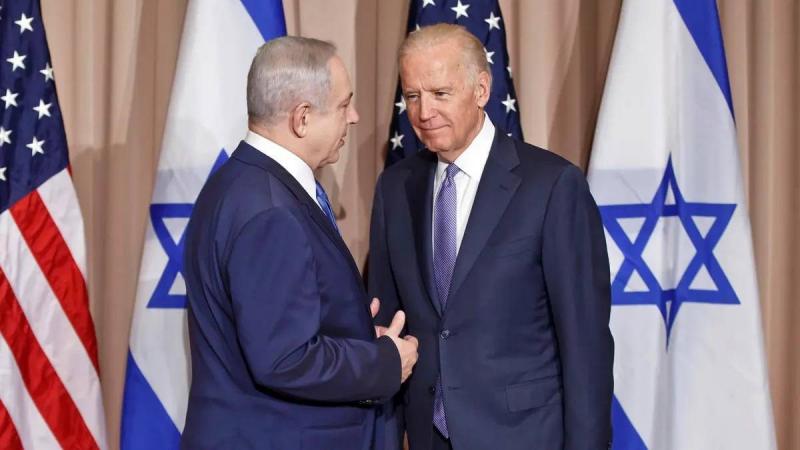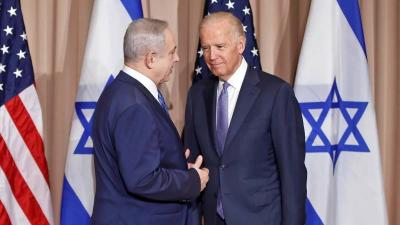It has long been repeated that American decisions are dominated by Israel; this assertion is common in the Arab political narrative, often filled with exaggerations and sometimes inaccuracies. Conversely, American politicians claim that they support Israel because it is the only democracy in the region, which is also not entirely accurate. The significance of the Jewish state to the United States lies in its role as a strategic ally in the region, aligning with its overarching policies and considering it a vanguard in the Middle East. There are many countries friendly to the United States in the region, yet Israel is among the few that are strategically important to it. This relationship of interests does not negate other influences that reinforce it, such as similarities in political systems, religious ties, and a strong lobby.
The relationships of great powers with other countries are often complex and intertwined, and cannot be simplified without losing meaning. Washington's relationship with Israel is profound; it is the most important ally in the region for geopolitical reasons, much like its allies South Korea, Japan, and Australia. America supports and backs Israel, just as it does its three allies in disputes against China and North Korea, mobilizing fleets and military bases in the air and at sea, along with the UN Security Council.
Simplifying the relationship by portraying the United States as a misled giant led by a small state like Israel overlooks many commonalities between the two countries and the political dynamics at play. It can be condemned, but there should not be surprise that the United States rushes to the UN Security Council to use its veto power against condemning Israel. The same action is taken by China and Russia in defense of governments close to them, against condemnations of Iran, Cambodia, and Laos. In 2017 and 2018, Russia used its veto to block condemnations of Syria multiple times when it used chemical weapons during the revolution that killed thousands. China also utilized its veto to protect its allies such as Syria, Myanmar, Hamas, and North Korea.
The United States sees Israel as a fierce animal that does not hesitate to engage in battles, making it its strategic ally in the Middle East for geopolitical and military reasons. Meanwhile, Washington considers other countries, such as Saudi Arabia, as friendly based on political and energy considerations, while Israel has played a pivotal role in supporting U.S. policies in the Middle East, as seen during the Cold War within the Western bloc opposing the Soviet axis.
Let’s start from the beginning of Israel itself. When the Jewish state declared its independence on May 14, 1948, the United States rushed to recognize it just 12 minutes later. The Soviet Union also quickly announced its recognition of Israel, becoming the first to do so at the United Nations on May 17. Why did these countries race to win the favor of the new state? There is a saying that the West established Israel as atonement for what happened to the Jews during the Nazi holocaust in World War II, which may be partially true, but we should not forget that Israel was a state-building project on Palestinian land since the late 19th century during the Ottoman Empire, and it was not a unique case—countries like South Africa and Australia were also established in the early 20th century. The establishment of Israel in 1948 was thus a fulfillment for them. The West then supported Israel as atonement for the atrocities committed against the Jews, in addition to the support from Jewish communities that stood with the Allies in their war against the Axis powers, while the Palestinian leadership sided with Nazi Germany.
Even these historical considerations are not enough to maintain alliances that change with geopolitical variables. Importantly, the Americans later imposed an arms embargo on Israel in an effort to stop the clashes in Palestine, while France was the only country that continued to provide military support to Tel Aviv. Since the 1950s, the rising competition with the Soviet Union in the Middle East pushed the Americans to court Arab states to halt communist expansion. Thus, the United States stood with Egypt against Israel, Britain, and France in the UN Security Council, condemning the tripartite aggression on Sinai. Washington then compelled the aggressor nations to withdraw. This historical incident is crucial for understanding the complex relationship. The Israelis conspired with the British and French to occupy Sinai and control the Suez Canal, and due to the massive disparity in power, they won the war in nine days. Few notice that the occupation lasted for five months. Israel was angry with Washington for forcing it to withdraw from Sinai. However, the Americans, with a broader global perspective, were keen to win Egypt to prevent it from falling into the arms of Moscow. Therefore, they brought assistance from the World Bank to Egypt, provided wheat for free, and agreed to support the construction of the Aswan High Dam. However, this situation did not last when Nasser aligned with the Soviets. The rest of the conversation will continue tomorrow.




